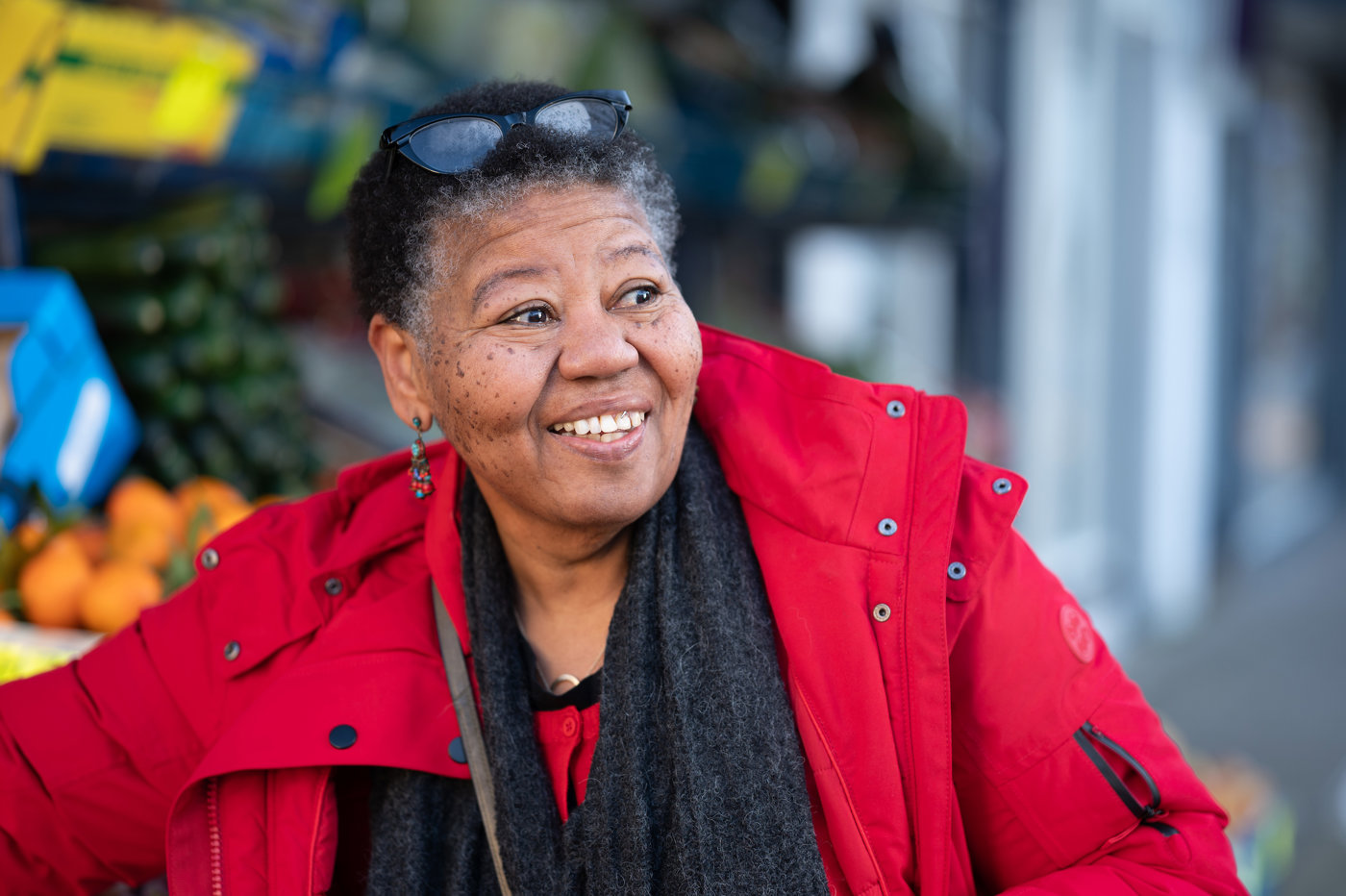How do you handle work and money for now and for the future? Do you live hand to mouth or are you consciously planning your financial future? And are you taking care of your future yourself, or are you part of a pension fund?
Renia Mers (64) absolutely wants to get away from financial assistance.
Renia Mers (64)
Profession: Beginning budget coach
Hours worked weekly: 24 hours
Income: Financial assistance of 1016 euros net
Savings: None
Pension set up? Yes, accrued pension through previous jobs
What kind of work do you do?
“I’m an independent budget coach. I recently registered with the Chamber of Commerce as a business owner for the second time with my company. I’m planning to start facilitating workshops and creating budget plans for clients from January 1 on.”
What did you do prior?
“I worked at various banks full-time for 37 years. I was mainly involved with complaints and quality. When my department was eliminated during a reorganization, I decided to retrain as a budget coach. But just after I started my own business, my whole life fell apart. My relationship ended, so I had to move out of our jointly owned home and in the years after that I had a stroke twice. It was a difficult and stressful time, during which I was not able to establish my new company. Hopefully it will be successful this time.”
How much money do you make now?
“I don’t have an income from my own business yet, so for the time being I’m getting financial assistance of 1016 euros a month net. In addition, I receive a health care allowance, but I don’t get to keep any of that, of course. My last salary at the bank was about 2200 euros a month net, so this new income took some getting used to.”
How do you manage with that amount?
“As a budget coach, you figure out how to handle money at some point. I give myself a weekly 40-euro budget. Once that’s gone, that’s it. No, it’s not a lot. But I don´t want to be in debt, so I don´t have a choice. I’ve been having to get by on this amount for the past five years, so I’m used to it by now. It’s hard to get out of financial assistance once you’re in the system. Once you’re past 50, it’s really hard to get hired anywhere. I did some volunteer work at times, where I got a 100-euro-a-month honorarium. But other than that, you’re not allowed to earn any more, before they start taking it off your benefits. It is through the project ‘part-time business owner on social assistance’ by the municipality of Utrecht that I’m able to do start this business now. I’m very happy with this opportunity, because it makes it a little more dignified to be on financial assistance. Plus, I’m assuming that my company is going to be a success.”
What are your monthly expenses?
“My rent is 673 euros. My phone subscription is 28 euros a month and I pay 90 euros for gas and electricity. Quite a bit. And internet, TV and phone calls cost me 70 euros a month. In addition to my health care insurance and liability insurance, I also have funeral insurance at 15 euros a month.”
